Best Ways to Get Booked on Podcasts
Talk to new listeners you'd otherwise miss out on. Get booked on podcasts, expand your reach, and grow a thriving community.
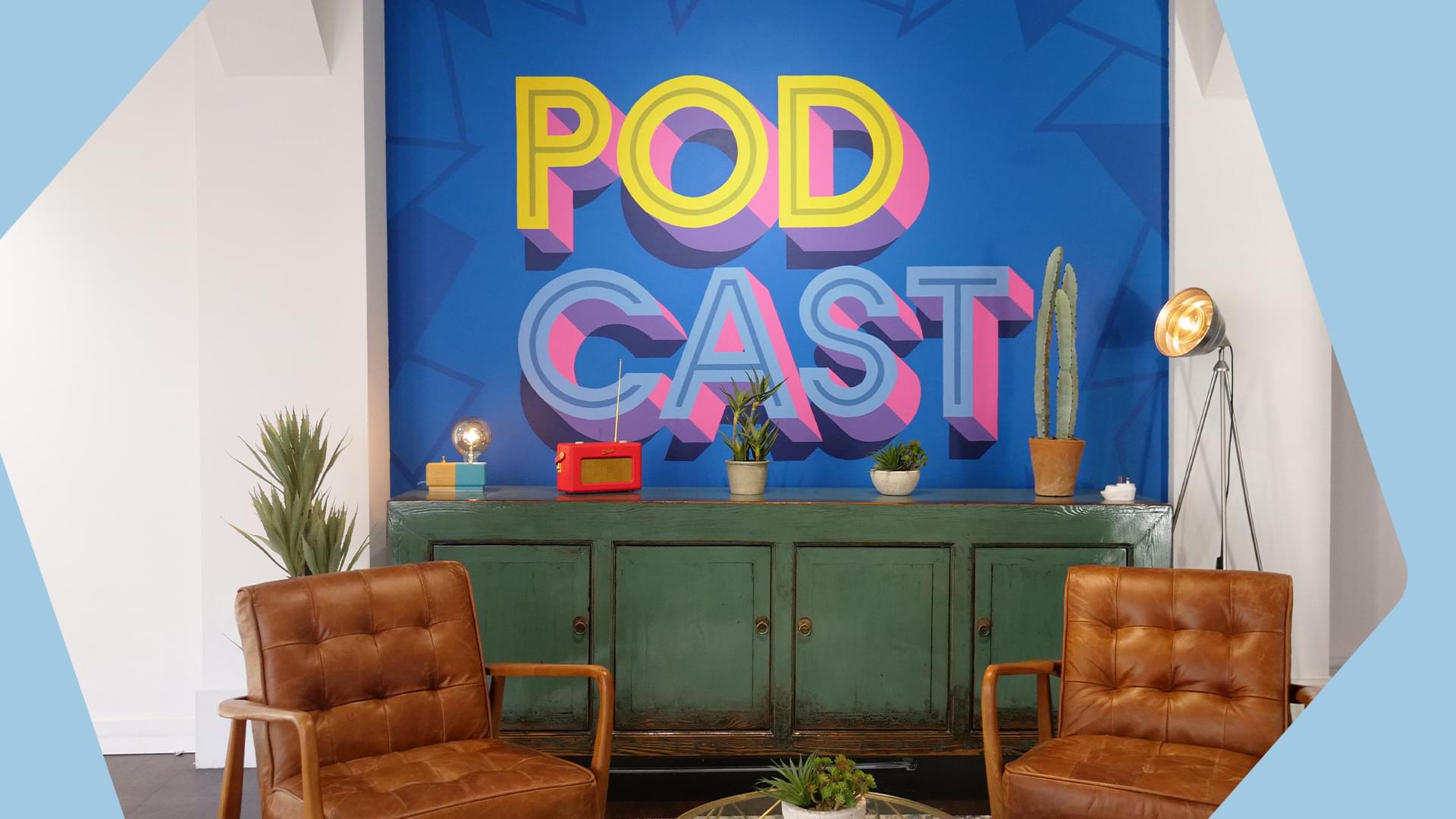
Podcasts are all the rage. With an audience of hundreds of millions, podcasts are a huge market that’s getting bigger every day.
But what does that have to do with you?
There are many reasons you, as a broadcaster, should take note of the podcasting world. By getting booked on podcasts as a guest you open yourself up to a host of new opportunities:
- Target a specific audience and promote your station to people who may not listen to traditional radio.
- Network with podcasters and broadcasters to build new connections and gain more opportunities.
- Generate traffic and exposure through cross-promotion on social media and being shared on their channels; Facebook, Twitter, Instagram, YouTube etc.
You can try to get booked on podcasts through exposure, but this is unlikely to yield quick results and you have no guarantees of being contacted. Along with this, podcast producers are as discerning about who guests on their shows as you should be for broadcasts, and aren’t going to book anyone their audience won’t enjoy.
Thankfully, there are ways to break into the podcasting scene.
How to Find the Right Podcast For You
When you’re wading out into the ocean of podcasts, it may seem daunting to find one that has crossover appeal with your station, given the vast variety of shows available. This isn’t the case, however, as there are podcasts for almost literally everything, so even if your station has a specialised subject with niche appeal, there will be an equivalent podcast.
So how do you find the right podcast among the thousands out there? Well, there are a few ways:
MatchMaker is an app developed by our friends over at Podcast.co that connects you to an ever-growing library of like-minded content creators. It’s like Tinder, but for Podcasters.
You can sign up either as a podcast looking for contributors or a guest looking to contribute to shows. For your purposes, you’ll want to sign up as a guest.
When you begin signing up, you’ll be asked to fill in some personal details so podcasts can get an impression of you and what you’ll bring to their show. This includes basic information like your name, gender, location, a profile picture and other general material.
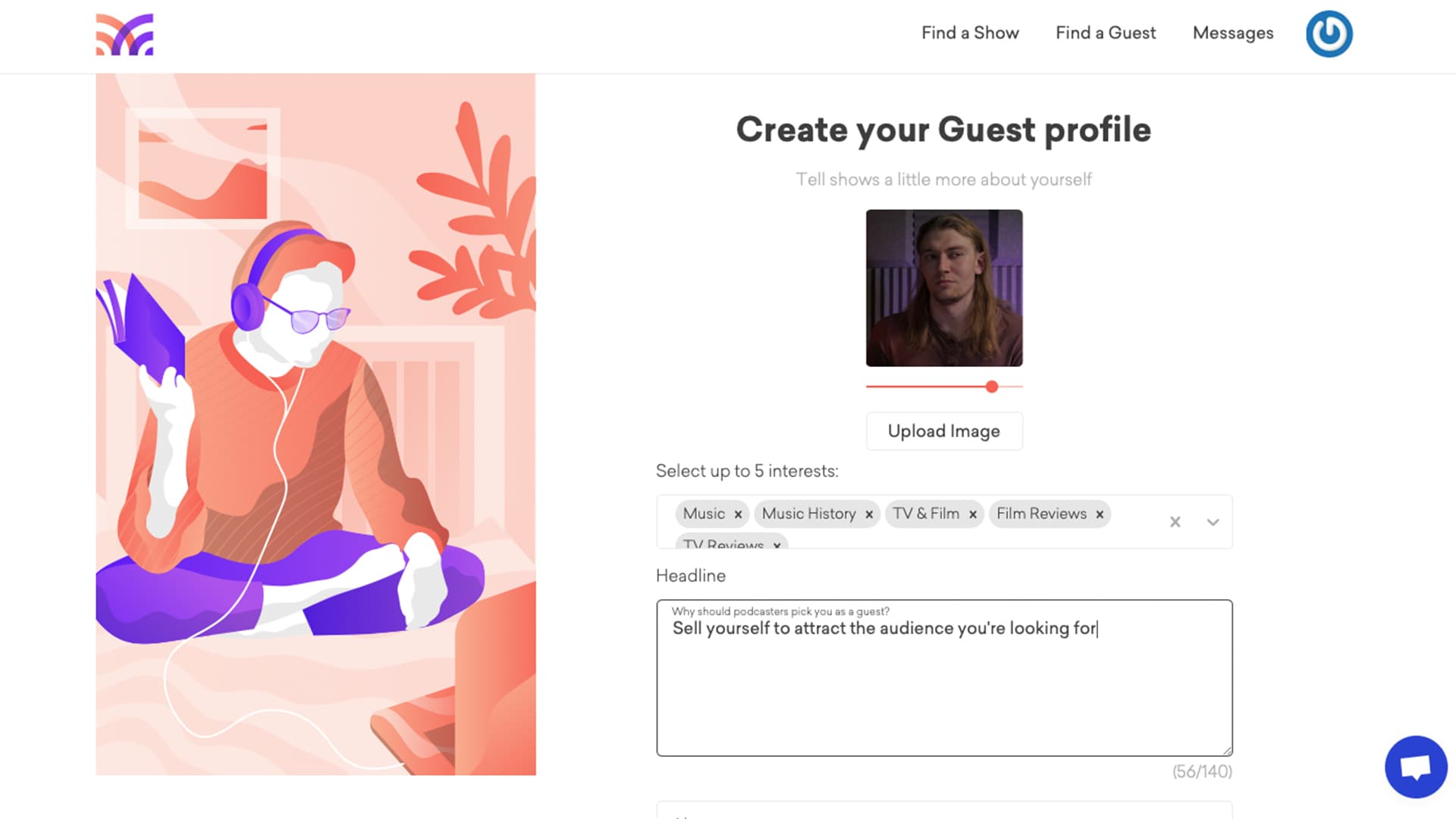
After this, you need to create a strong headline and profile description, outlining what sets you apart from the crowd. It’s not just enough for a podcast to be right for you, after all, you need to be right for the podcast. This is where you define what makes you unique, so it’s in your best interests to create an attractive profile to catch the eye.
Keep the information here concise and clear. People don’t want to read pages of fluff; it’s more likely to turn people away than attract them. If you can easily condense a paragraph into a sentence without losing anything of value, do that. Ensure everything is relevant to the focus of your station; you’re trying to attract podcasts you can contribute to meaningfully and easily cross-promote. You don’t want to attract podcasts that have an audience you won’t appeal to.
Once that’s done you can establish your availability; weekdays or weekends, the level of equipment you have; from USB mic to professional quality, as well as if you have access to a webcam and can appear in person or remotely. Keeping this information visible cuts out any inconvenience when getting booked on podcasts, as all the scheduling and technical information producers could need is at their fingertips.
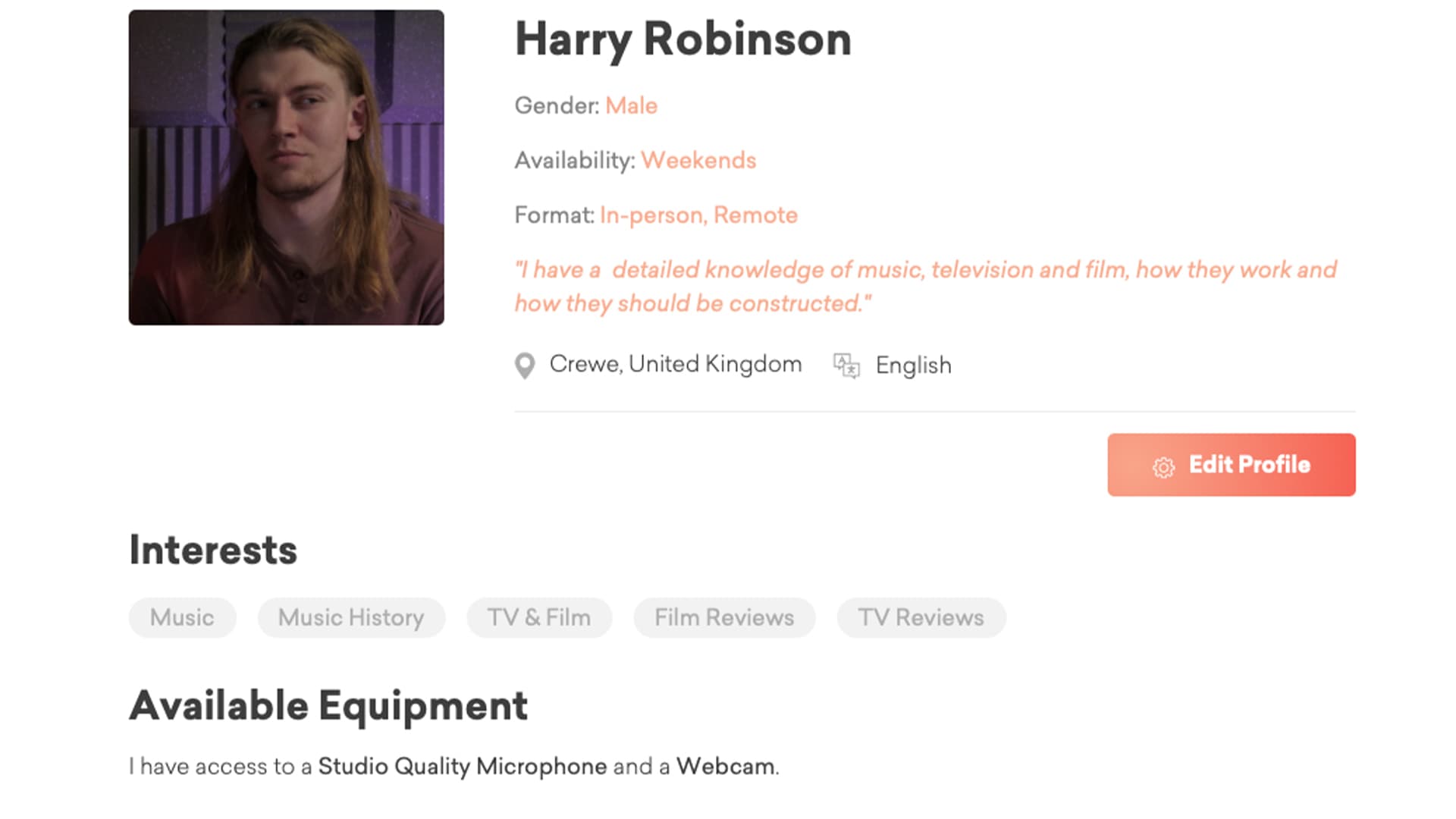
To complete your profile, add links to your website and any recorded shows that you feel best represent your work so people can check you out in action. This may be what really helps distinguish you and demonstrates your skills and knowledge more than any profile description will.
Once you’re set up and good to go, you’re free to search through MatchMaker’s database of podcasts and discover some suitable for you. The app has filters so you can narrow your search, by choosing the genre, location and language of the podcasts you’re looking for.
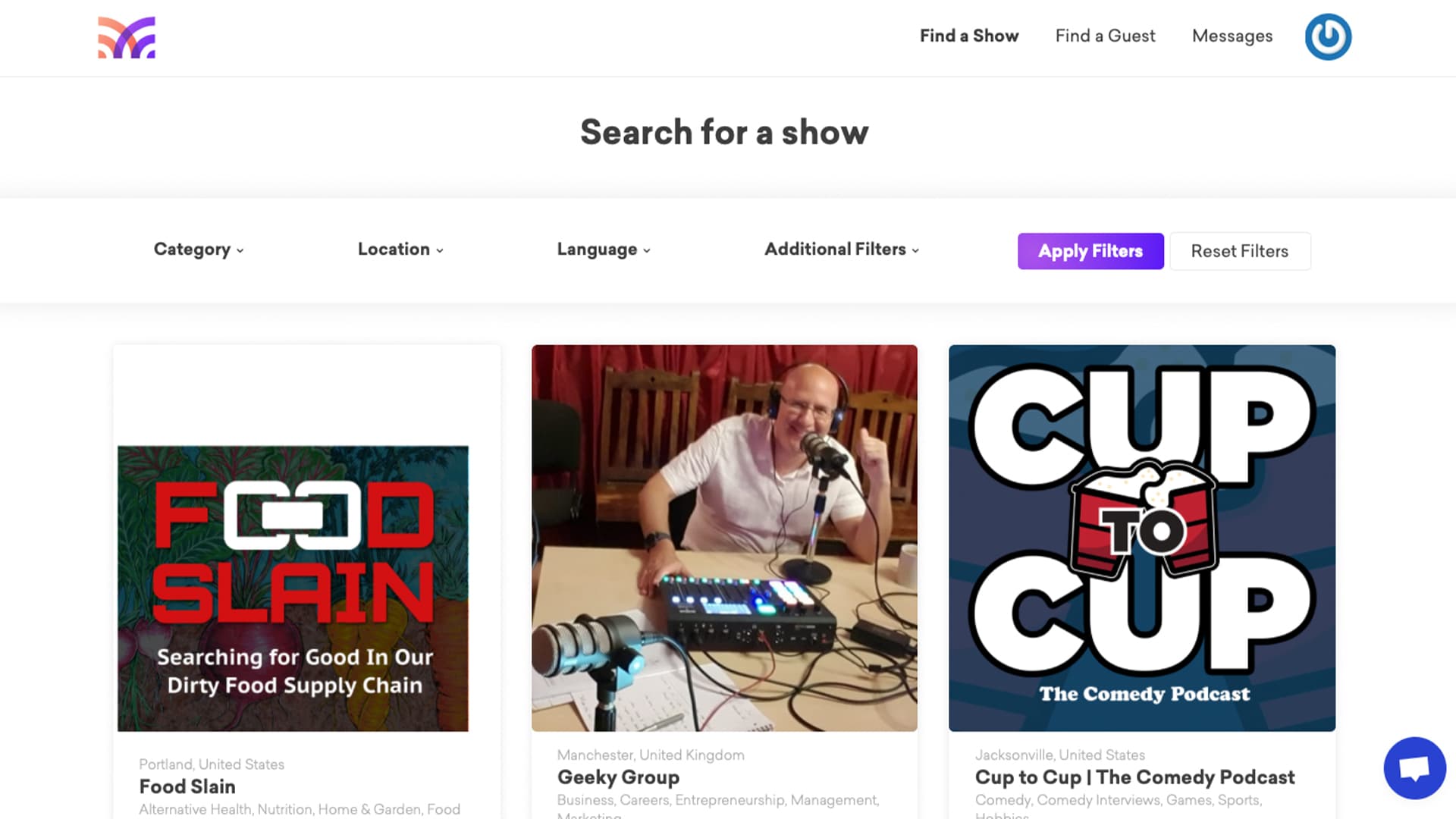
Once you’ve found some shows you feel are right, it’s easy to get in touch, just hit ‘Contact Show’ on their page and it’ll bring up an auto-generated message you can send or you can take time personalising your message before you send it. After that, keeping in contact is easy through the ‘Messages’ tab at the top of the page.
Here's a quick guide on how to get started on MatchMaker and how to best use it:
Searching Podcast Directories
If Matchmaker isn’t for you, there are plenty of services where you can find an abundance of high quality podcasts, including Apple Podcasts, Spotify, Stitcher, TuneIn and even our sister site Podcast.co. While finding podcasts through these sites won’t let you contact them directly, they’re great platforms for discovering shows and determining if they’re right for you with just a quick listen.
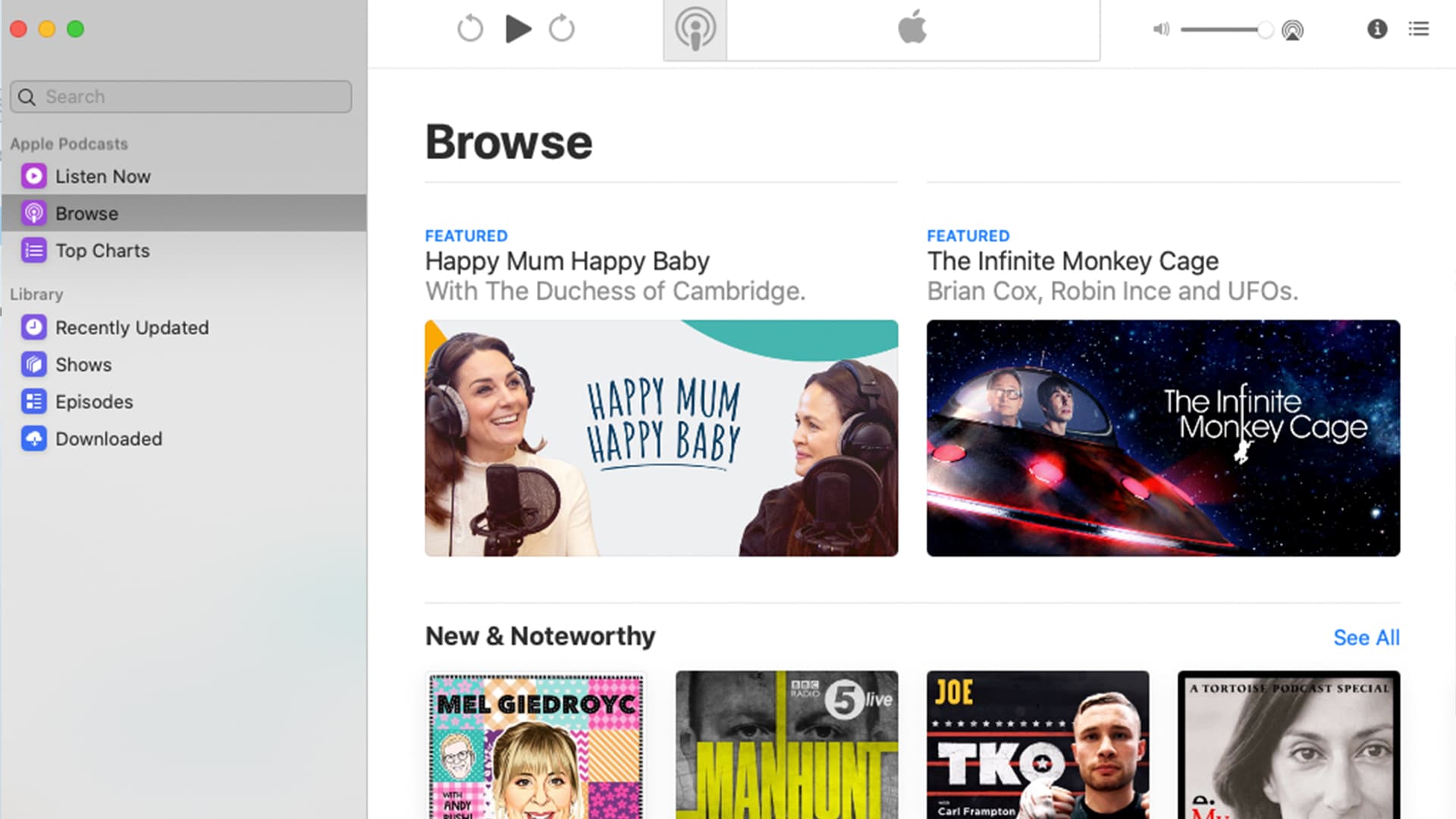
Googling Guests
If you’re having trouble finding something suitable, you can always just google your relevant subject, followed by podcast and see what comes up. For example, if your station focuses on American culture, just google ‘American culture podcast’ and you’ll be guaranteed a slew of relevant podcasts to check out. Trust us, when it comes to podcasts, there are no gaps in the market, everything has been covered, so you’ll find something that appeals to your niche.
Trawling Social Media
This option can be more of a slow burn than the previous choices. Take advantage of the connections social media provides by using Facebook groups and Reddit to ask around for podcasts that are suitable for you. This could get you in direct contact with podcasters straight away, so you can begin forming relationships straight away.
However, for this, you will be relying on the honesty of online strangers, which can always be a bit dangerous, as well as time consuming. As such, it’s best to send out messages through social media while also sourcing podcasts through the other means we’ve provided, rather than just relying on social media, to avoid disappointment.
Finding Podcasts Worth Investing Time In
Now you’ve found your ideal podcasts, you’ve probably amassed a long list to get into contact with. But before you start the arduous process of sending out 60 emails at once, there are a few other things to consider to make sure a podcast is definitely the right fit for you and your content.
Do they Have Guests?
Not every podcast is Joe Rogan, some are audio documentaries and have no guests or possibly no studio setup, so it’s best to make sure of this before you contact them.
Google Them
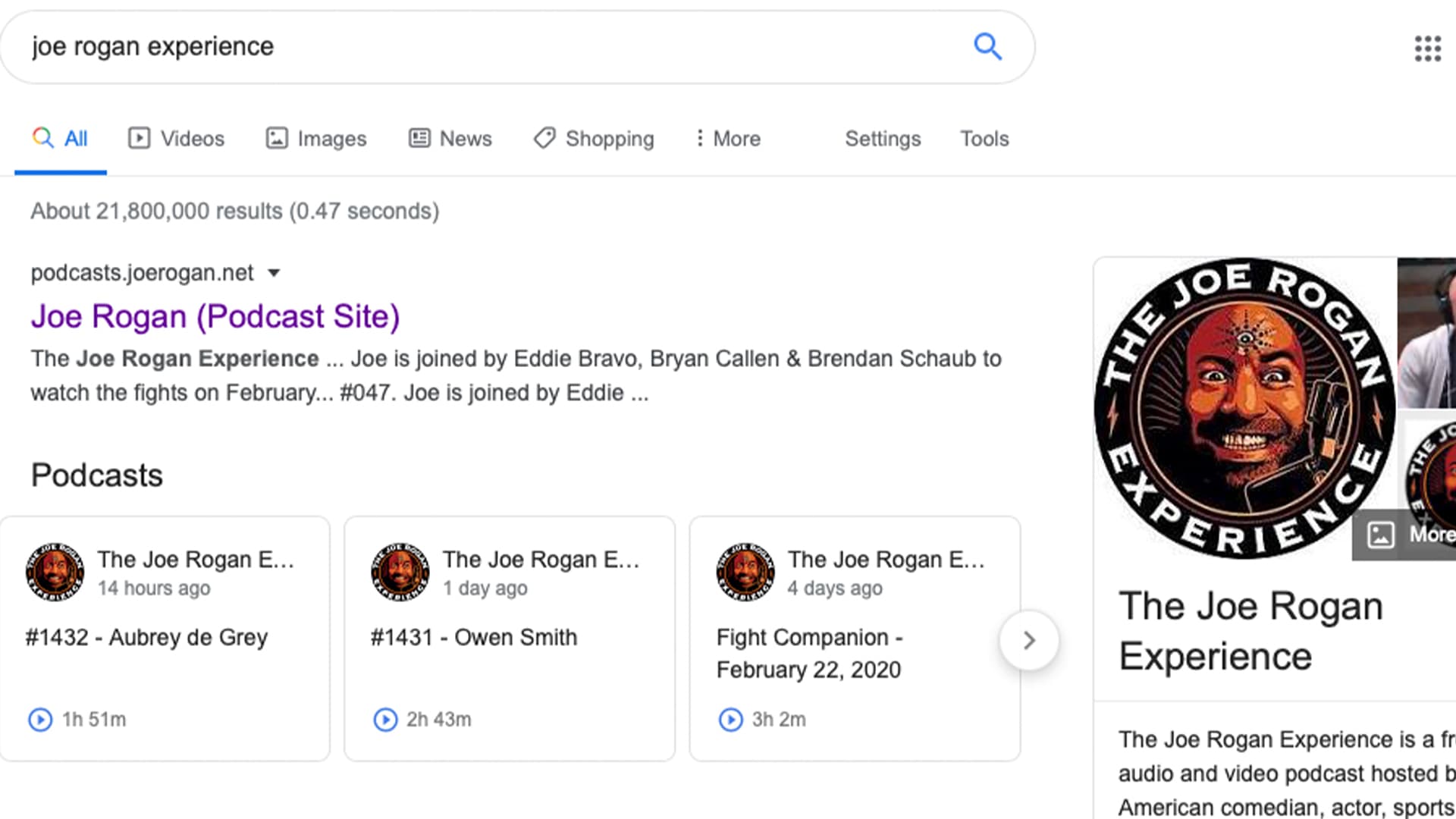
See what their reach is so you can determine how appearing on their show will benefit you. See what articles have been written about them and what they have to say, positive or negative. This should help you assess whether appearing on a particular podcast will improve or damage your reputation. If a podcast has a huge fanbase but constantly courts controversy and negativity then it may not be worth the risk to your own reputation. People judge through association.
Check their Social Media

See how they interact with their audience and how often. Negative behaviour on social media can affect you. However, if they are consistently receiving positive feedback on their posts it can be a great boost for you if you get promoted through their channels, exposing you to a receptive, trusting audience.
Look at their Website
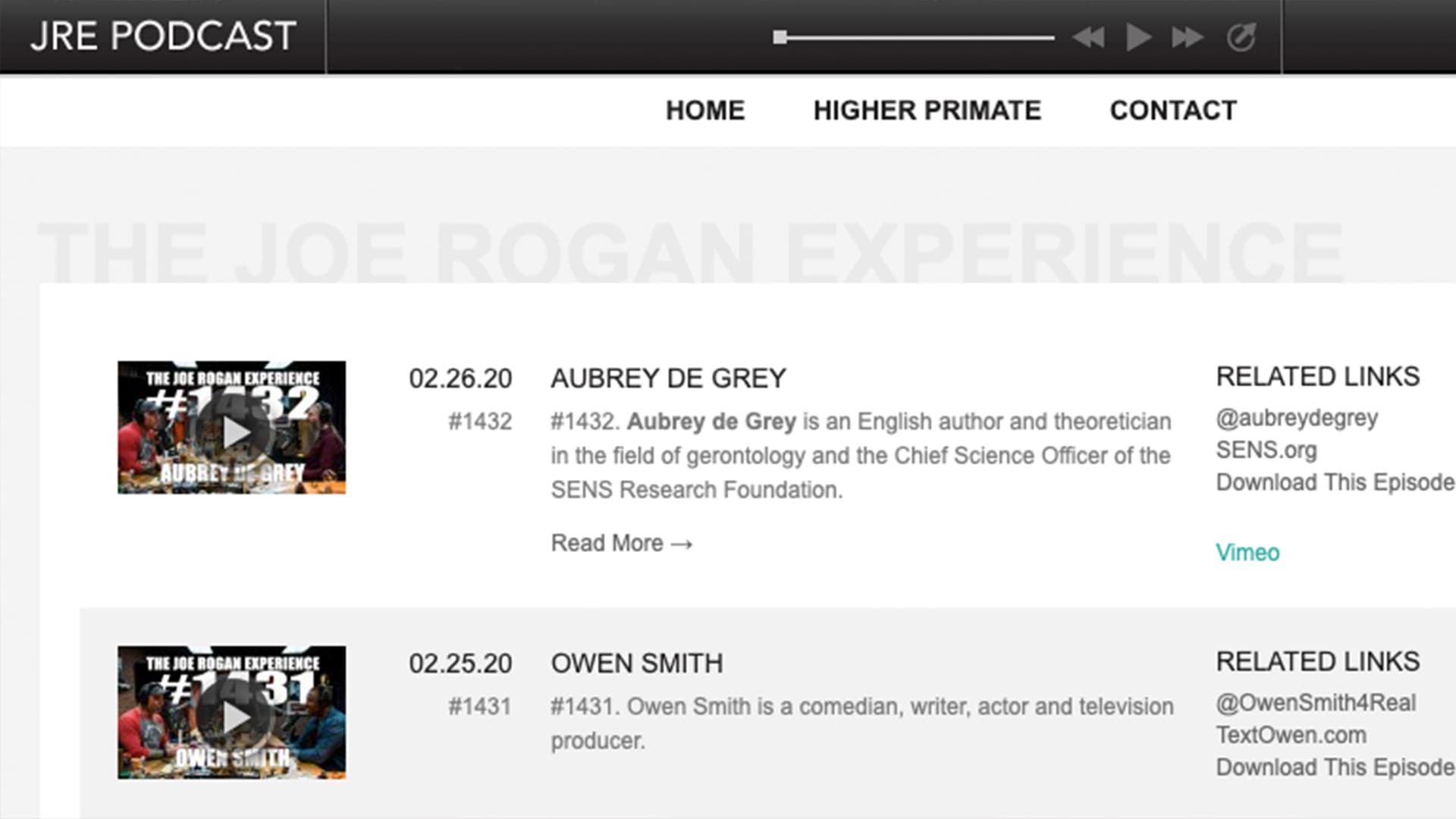
Get a fuller picture of how they operate. Do they write articles? Do they organise events? Who are they partnered with? Interviews and guest spots are opportunities to network and swap contacts, so doing research will help identify useful contacts.
Check Reviews
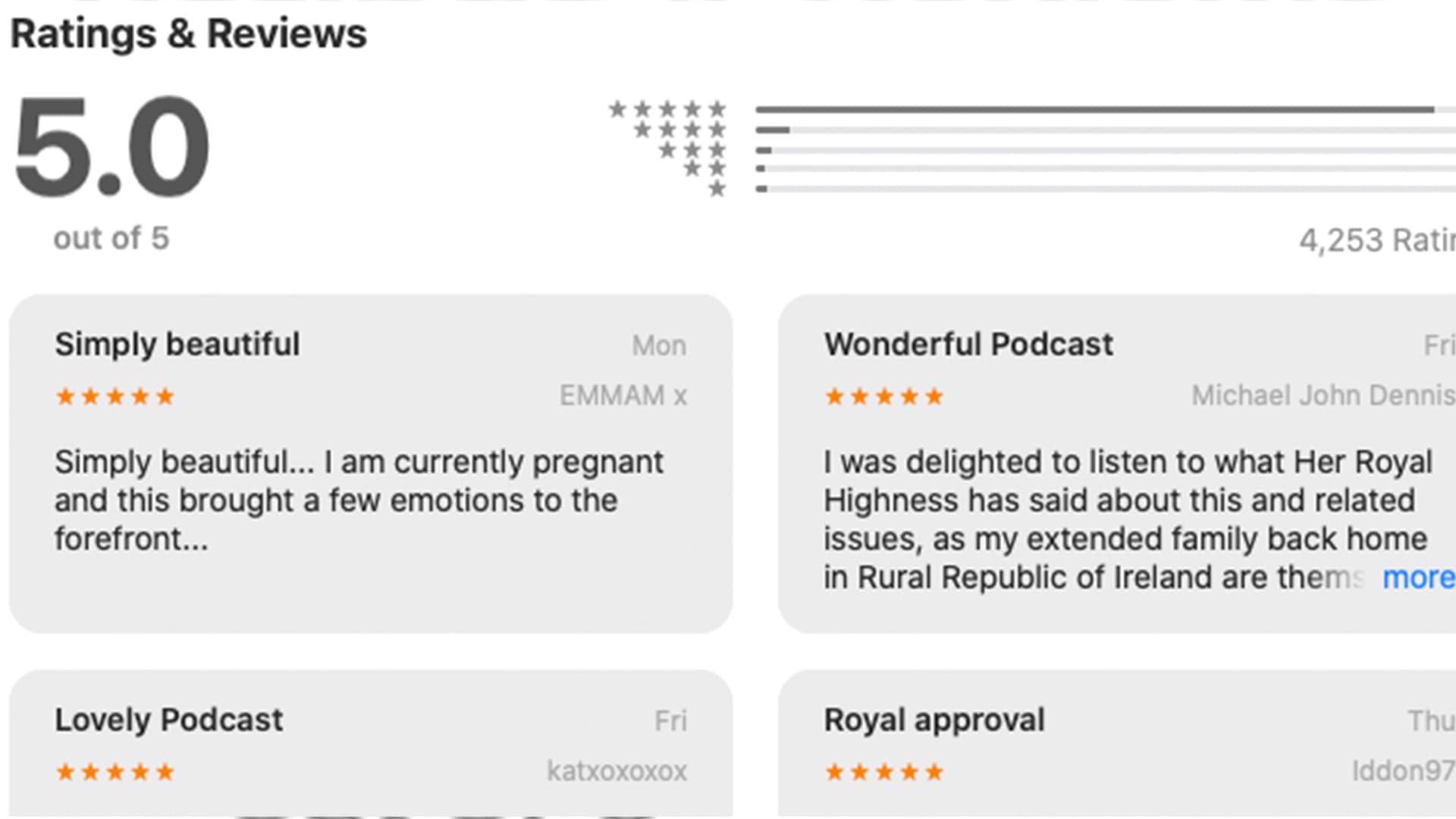
See what sites like Apple Podcasts have to say. Are they positive? Negative? How many are there? A long-running podcast with no reviews may not be worth it, but a podcast with hundreds of positive reviews is worth contacting.
Listen to the Show
This sounds simple but it’s vital for establishing if the podcast is suitable for you. You can establish what the tone and atmosphere is like, and whether you’ll get along with the host(s). If they’re loud and boisterous where you’re moderate and well spoken it may make a good combination, but it may also be a disaster. Making sure you’re compatible with their personalities is important when considering if your appearance will make good content or not. If your appearance on a podcast is boring and doesn’t make a lasting impression, you’re not going to get traffic from their audience.
Getting in Touch
Once you have a list of podcasts that have passed these checks, it’s time to get in contact. There are a number of ways you can get in touch with podcasts, the easiest being through Matchmaker, where you can directly contact creators via direct message and keep track through your messages tab.
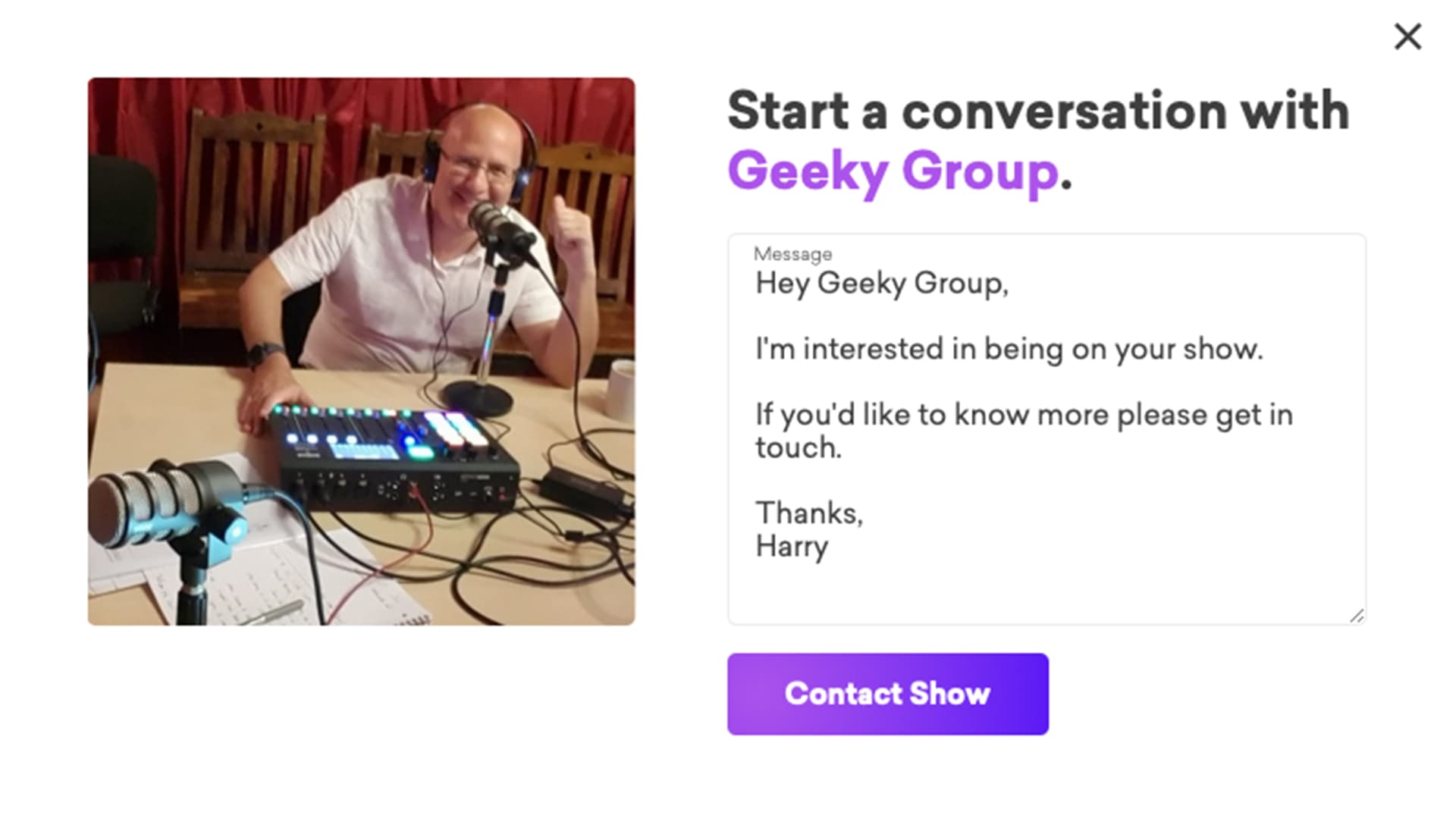
Alternatively, for shows you have discovered that aren’t on Matchmaker, their websites will include a contact email address or submission form where you can make queries and get in touch.
When you begin contacting your chosen podcasts, we would recommend creating a spreadsheet containing their names, what they focus on, contact information, when you first contacted them, when/if they responded to you and any notes required. Adding notes helps you keep track of any important information, such as availability for phone calls or meetings. Staying organised will help you keep track of your correspondence.
Many podcasts you contact are likely to be receiving hundreds of emails from eager content creators, so don’t throw in the towel if they don’t respond immediately. If you don’t receive a response initially, follow up after 3 days. Send another email after 14 days without response, and then 30 days. After the final message on day 30, if you don’t receive a response, you can confidently mark them off as ‘not interested’.
The Right Way to Pitch to Podcasters
It’s not enough just to have a smart contact strategy, you need to craft a compelling pitch to draw in your potential collaborators. Sending out an obvious email template comes across impersonal, lazy, and suggests that you don’t value the quality of the podcast, at least not enough to personalise your pitch to them.
Instead, develop a personalised pitch for these podcasts, detailing what value you can add to their show and why you’ll appeal to their audience. If you’re really enthusiastic about working with a particular podcast, consider creating a video or audio pitch. Not only will this display an extra level of effort, distinguishing you from the crowd, it will also give them a better idea of your personality and how you present yourself. Try to behave in these similarly to how you would on your show, to not misrepresent yourself.
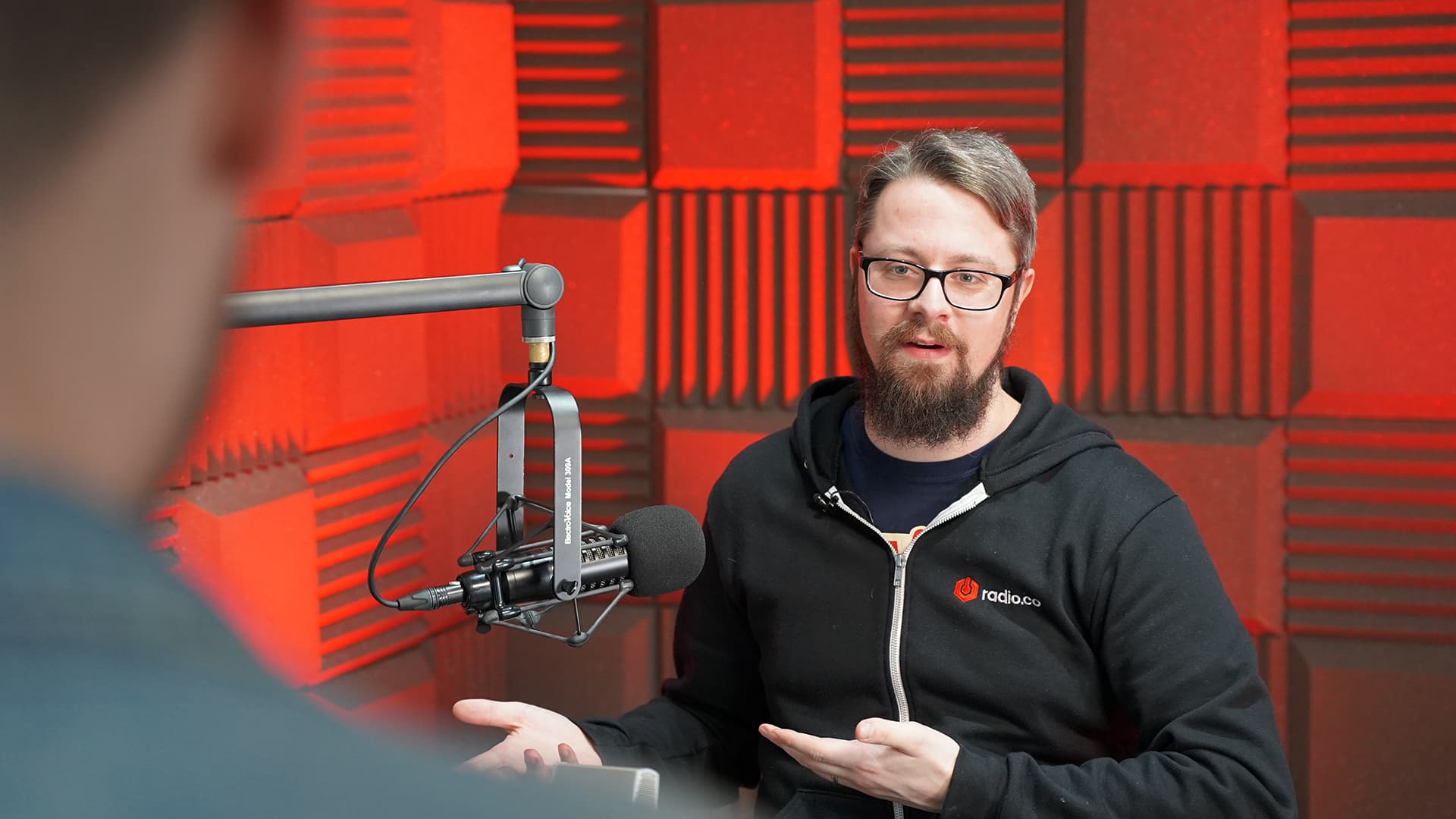
Include any important links as part of your pitch, such as your website and social media. Give them a full picture of your content so they can review your suitability for their show. You should also include links to booking systems like Calendly and SimplyBook.me so they have immediate access to your schedule and availability, while also allowing them to book you straight away if they’re impressed, avoiding any unnecessary time wasting through emailing back and forth.
Maximise Your Time with Interview Prep
Once all of the effort has paid off and you’ve been booked onto a podcast as a guest, you can sit back and relax, right? Wrong. As with everything in this industry, there’s always more to do. In this case, it’s making sure you’re ready for your interview. As a broadcaster, you should already have plenty of experience talking off the cuff, but you should still prepare so you can make a good impression on the host, producers and audience.
If you’ve interviewed guests before, as part of your broadcasts, think of the sorts of questions you would ask them and apply that thought process to yourself. Once you have an idea of what they may ask you, you can think of some general answers for these questions. If you’d like to take guesswork out of the equation altogether you could always ask the producers for a list of questions they may ask you. They may accommodate you, they may not. Some presenters prefer for a guest not to know what they’ll be asked prior to the show, to produce more natural answers, and it doesn’t account for the conversation going on tangents, so it isn’t foolproof.
However, at the very least, have some notes, stories and anecdotes prepared so that you have something to fall back on. If you make a good impression, you stand to gain new listeners for your broadcasts and expand your influence to an audience who you wouldn’t have reached otherwise.
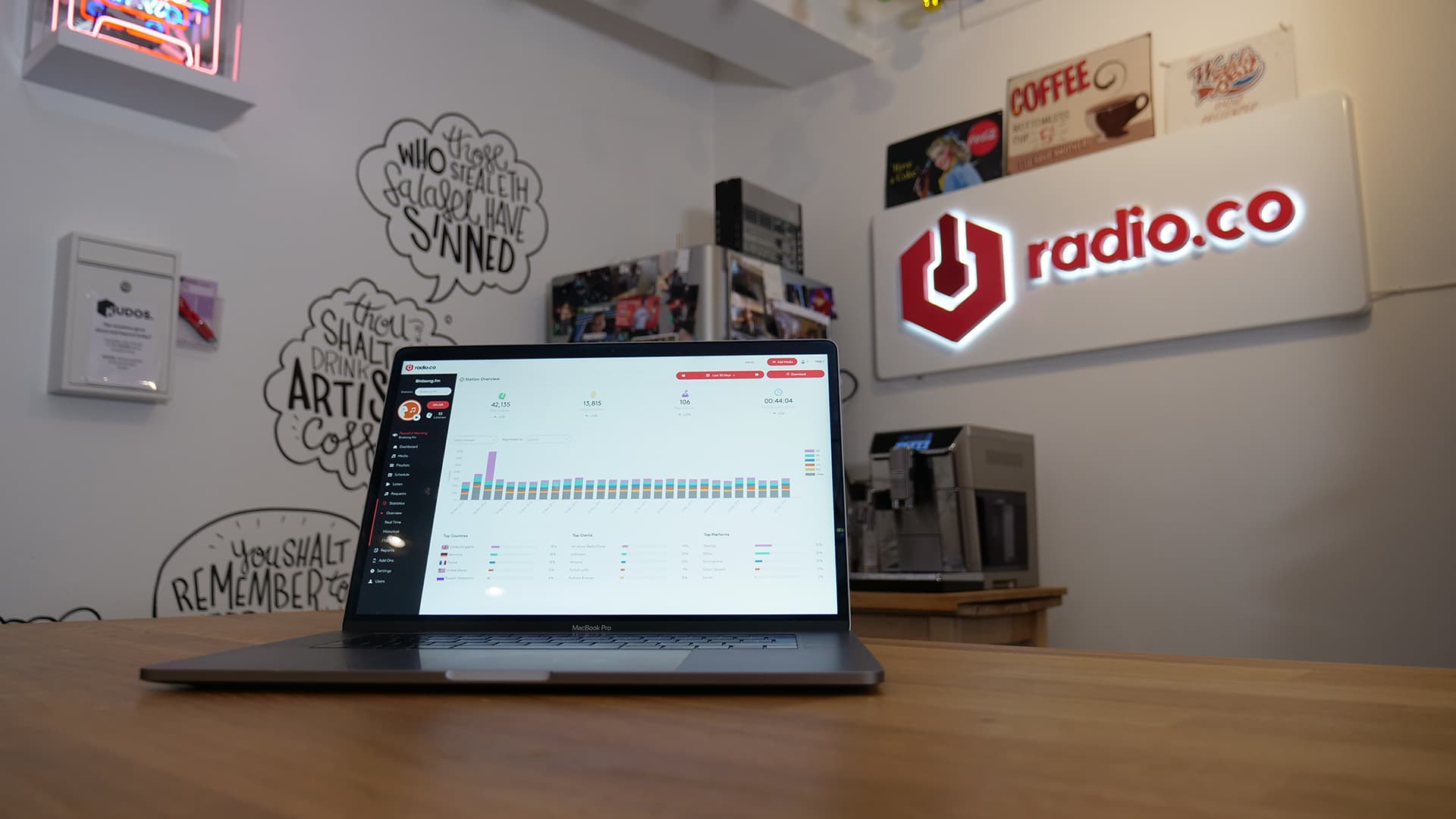
Getting booked on podcasts can be difficult and time-consuming, but with this guide, you have the tools you need to succeed. Let us know how you get on, down in the comments.
And if you’re interested in an easy, convenient way of broadening your reach and expanding your contacts, consider signing up for MatchMaker using the button below.





